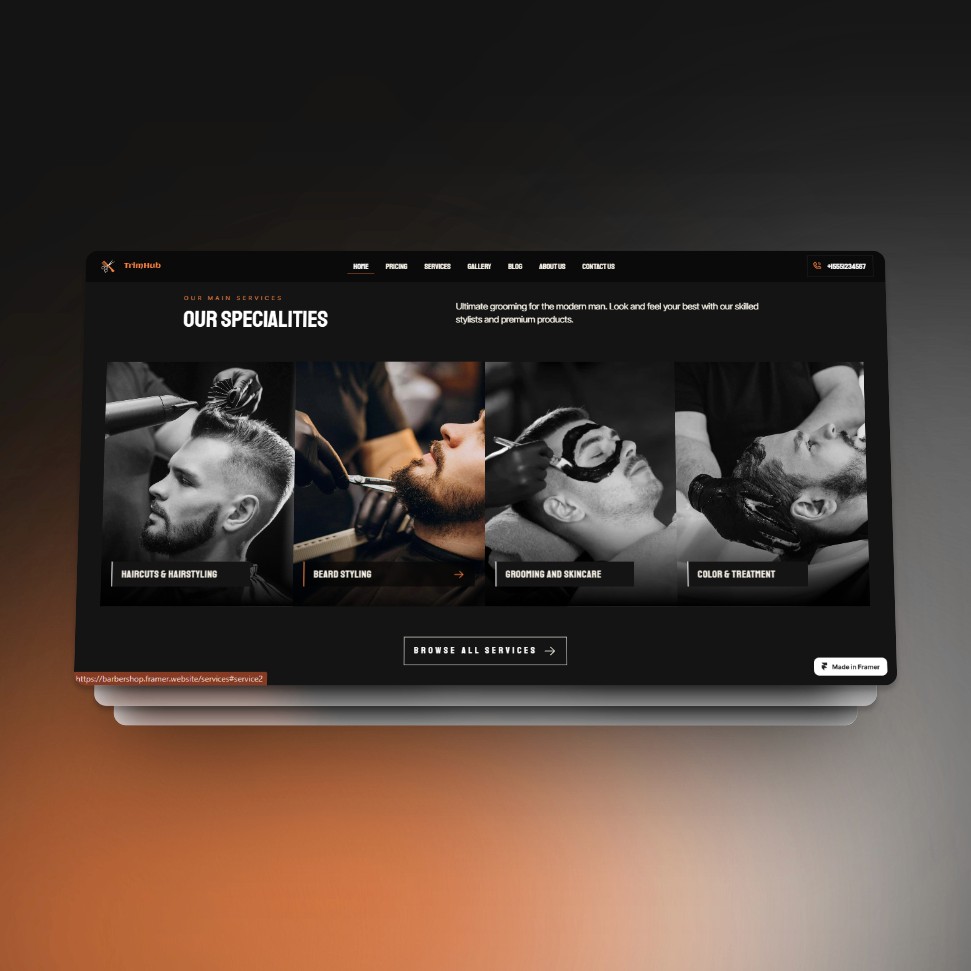Our Three Step Process
Our Three Step Process
The E-Commerce Brand That Thought Discounts Were a Growth Strategy

Our Three Step Process
The E-Commerce Brand That Thought Discounts Were a Growth Strategy

An up-and-coming e-commerce brand approached us with a pressing concern—their sales were stagnant despite running constant discounts. They were slashing prices, offering “limited-time” deals every other week, and bombarding their email subscribers with “FLASH SALE! 50% OFF!” messages. But instead of seeing an increase in customer loyalty or revenue, they were attracting bargain hunters who only bought when there was a discount—and never returned for full-priced purchases. Their brand was stuck in a never-ending cycle of discounts, which was damaging their perceived value.
The Challenge
The brand had unknowingly conditioned its audience to only buy during sales. Customers had no urgency to purchase at full price because they knew another discount was right around the corner. Instead of building brand loyalty, they were attracting price-sensitive shoppers who would jump to a competitor if they offered a bigger discount.
On top of that, their profit margins were shrinking, and their email engagement was dropping as customers became desensitized to their non-stop promotional emails. They needed a new strategy that would drive revenue sustainably without relying on endless price cuts.
Our Approach
Instead of relying on discount gimmicks, we helped them shift from a discount-driven model to a value-driven growth strategy. The focus was on building brand trust, increasing perceived value, and creating long-term customer relationships.
1. Positioning the Brand for Value Instead of Price
We redefined their brand messaging to focus on:
Quality, uniqueness, and brand story rather than just price reductions.
Highlighting their product benefits, materials, and craftsmanship to justify their pricing.
Introducing social proof with testimonials, case studies, and influencer collaborations.
This helped reposition their brand as a premium choice rather than just another discount store.
2. Implementing Smart Pricing & Incentives
We developed a pricing strategy that didn’t rely on deep discounts:
Introduced tiered pricing and bundles to increase average order value.
Offered exclusive perks like early access, free shipping, and loyalty rewards instead of just discounts.
Shifted focus to value-based promotions like limited-edition collections rather than price cuts.
3. Enhancing Customer Retention & Loyalty
Instead of chasing one-time discount buyers, we built a customer retention system:
Launched a loyalty program that rewarded repeat purchases, referrals, and engagement.
Personalized email marketing based on customer behavior and purchase history instead of generic sale announcements.
Focused on community building through storytelling, behind-the-scenes content, and customer spotlights.
The Results
Within 90 days, the impact was clear:
✅ 38% increase in average order value due to strategic pricing and bundles.
✅ Higher customer retention, with repeat buyers increasing by 45%.
✅ Email open rates jumped from 12% to 38%, proving that customers were now engaging with the brand rather than ignoring constant sales pitches.
✅ Profit margins improved, as they no longer had to rely on extreme discounts to generate sales.
Key Takeaways
Discounts can work as a short-term tactic, but they’re not a sustainable growth strategy. If you train customers to wait for sales, your brand loses value and profitability. The key to long-term e-commerce success is building trust, offering real value, and creating a brand that people want to buy from—even at full price.
The Challenge
The brand had unknowingly conditioned its audience to only buy during sales. Customers had no urgency to purchase at full price because they knew another discount was right around the corner. Instead of building brand loyalty, they were attracting price-sensitive shoppers who would jump to a competitor if they offered a bigger discount.
On top of that, their profit margins were shrinking, and their email engagement was dropping as customers became desensitized to their non-stop promotional emails. They needed a new strategy that would drive revenue sustainably without relying on endless price cuts.
Our Approach
Instead of relying on discount gimmicks, we helped them shift from a discount-driven model to a value-driven growth strategy. The focus was on building brand trust, increasing perceived value, and creating long-term customer relationships.
1. Positioning the Brand for Value Instead of Price
We redefined their brand messaging to focus on:
Quality, uniqueness, and brand story rather than just price reductions.
Highlighting their product benefits, materials, and craftsmanship to justify their pricing.
Introducing social proof with testimonials, case studies, and influencer collaborations.
This helped reposition their brand as a premium choice rather than just another discount store.
2. Implementing Smart Pricing & Incentives
We developed a pricing strategy that didn’t rely on deep discounts:
Introduced tiered pricing and bundles to increase average order value.
Offered exclusive perks like early access, free shipping, and loyalty rewards instead of just discounts.
Shifted focus to value-based promotions like limited-edition collections rather than price cuts.
3. Enhancing Customer Retention & Loyalty
Instead of chasing one-time discount buyers, we built a customer retention system:
Launched a loyalty program that rewarded repeat purchases, referrals, and engagement.
Personalized email marketing based on customer behavior and purchase history instead of generic sale announcements.
Focused on community building through storytelling, behind-the-scenes content, and customer spotlights.
The Results
Within 90 days, the impact was clear:
✅ 38% increase in average order value due to strategic pricing and bundles.
✅ Higher customer retention, with repeat buyers increasing by 45%.
✅ Email open rates jumped from 12% to 38%, proving that customers were now engaging with the brand rather than ignoring constant sales pitches.
✅ Profit margins improved, as they no longer had to rely on extreme discounts to generate sales.
Key Takeaways
Discounts can work as a short-term tactic, but they’re not a sustainable growth strategy. If you train customers to wait for sales, your brand loses value and profitability. The key to long-term e-commerce success is building trust, offering real value, and creating a brand that people want to buy from—even at full price.
An up-and-coming e-commerce brand approached us with a pressing concern—their sales were stagnant despite running constant discounts. They were slashing prices, offering “limited-time” deals every other week, and bombarding their email subscribers with “FLASH SALE! 50% OFF!” messages. But instead of seeing an increase in customer loyalty or revenue, they were attracting bargain hunters who only bought when there was a discount—and never returned for full-priced purchases. Their brand was stuck in a never-ending cycle of discounts, which was damaging their perceived value.
The Challenge
The brand had unknowingly conditioned its audience to only buy during sales. Customers had no urgency to purchase at full price because they knew another discount was right around the corner. Instead of building brand loyalty, they were attracting price-sensitive shoppers who would jump to a competitor if they offered a bigger discount.
On top of that, their profit margins were shrinking, and their email engagement was dropping as customers became desensitized to their non-stop promotional emails. They needed a new strategy that would drive revenue sustainably without relying on endless price cuts.
Our Approach
Instead of relying on discount gimmicks, we helped them shift from a discount-driven model to a value-driven growth strategy. The focus was on building brand trust, increasing perceived value, and creating long-term customer relationships.
1. Positioning the Brand for Value Instead of Price
We redefined their brand messaging to focus on:
Quality, uniqueness, and brand story rather than just price reductions.
Highlighting their product benefits, materials, and craftsmanship to justify their pricing.
Introducing social proof with testimonials, case studies, and influencer collaborations.
This helped reposition their brand as a premium choice rather than just another discount store.
2. Implementing Smart Pricing & Incentives
We developed a pricing strategy that didn’t rely on deep discounts:
Introduced tiered pricing and bundles to increase average order value.
Offered exclusive perks like early access, free shipping, and loyalty rewards instead of just discounts.
Shifted focus to value-based promotions like limited-edition collections rather than price cuts.
3. Enhancing Customer Retention & Loyalty
Instead of chasing one-time discount buyers, we built a customer retention system:
Launched a loyalty program that rewarded repeat purchases, referrals, and engagement.
Personalized email marketing based on customer behavior and purchase history instead of generic sale announcements.
Focused on community building through storytelling, behind-the-scenes content, and customer spotlights.
The Results
Within 90 days, the impact was clear:
✅ 38% increase in average order value due to strategic pricing and bundles.
✅ Higher customer retention, with repeat buyers increasing by 45%.
✅ Email open rates jumped from 12% to 38%, proving that customers were now engaging with the brand rather than ignoring constant sales pitches.
✅ Profit margins improved, as they no longer had to rely on extreme discounts to generate sales.
Key Takeaways
Discounts can work as a short-term tactic, but they’re not a sustainable growth strategy. If you train customers to wait for sales, your brand loses value and profitability. The key to long-term e-commerce success is building trust, offering real value, and creating a brand that people want to buy from—even at full price.







Other Projects
Other Case Studies
Check our other project case studies with detailed explanations
Other Projects
Other Case Studies
Check our other project case studies with detailed explanations
Other Projects
Other Case Studies
Check our other project case studies with detailed explanations


